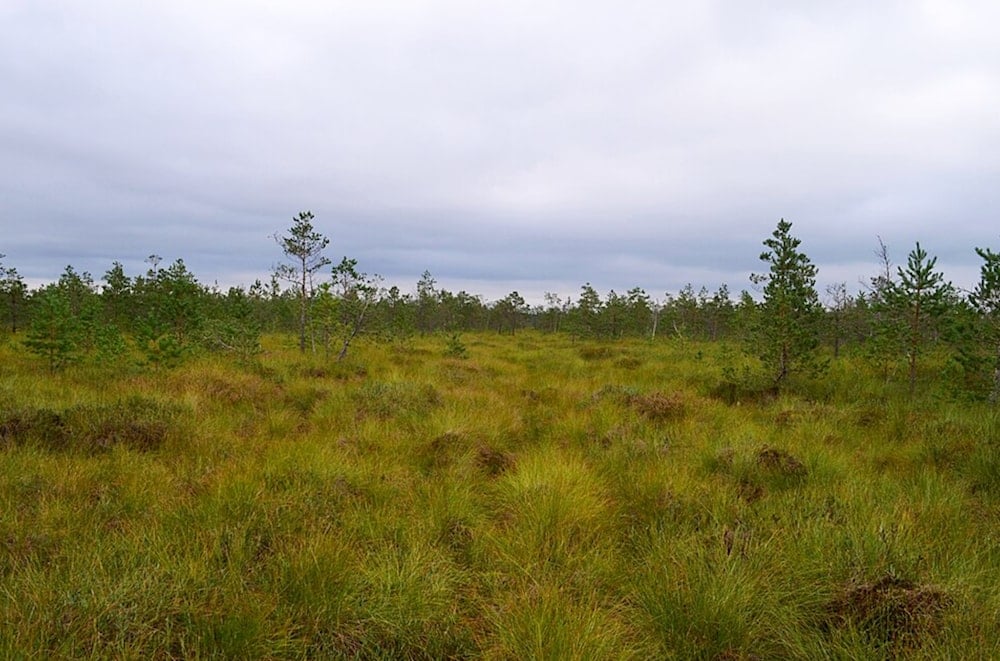Lithuania weighs swamp restoration as border defense against Belarus
Lithuania is considering restoring swamps along its Belarus border as part of a wider defense strategy, complementing regional fortifications and NATO coordination.
-

A swamp located in Varėna District Municipality, south of Marcinkonys village and north of Kotra River, which flows along the Belarus–Lithuania border (Wikicommons)
Lithuania is considering rewetting large stretches of wetlands along its border with Belarus, framing the move as both an ecological project and a novel security measure.
Nerius Zableckis, head of the Wetland Restoration and Protection Foundation, told LRT radio that swamps once covered about 60,000 hectares in the frontier zone, but more than half of them have been drained. "First and foremost, we are talking about restoring already existing but drained swamps ... The region’s swampiness along the border with Belarus used to be quite significant," he explained.
Restoring such terrain could take a decade, Zableckis said, with costs ranging from €500 to more than €2,000 per 2.4 acres. He also urged neighboring Latvia and Estonia to pursue similar measures along their borders with Russia and Belarus, calling on them to "use nature for defense."
Borderlands Turn Wet
The initiative dovetails with a broader Lithuanian push to reinforce its eastern frontier. In recent years, Vilnius has built fences and anti-tank barriers and joined Latvia and Estonia in planning the Baltic Defence Line, a system of bunkers, ditches, and fortified positions designed to slow potential incursions. Lithuania has also pressed NATO for stronger air defense coverage after drone incidents traced back to Belarusian territory.
The swamp plan also gained attention after a tragic reminder of the terrain’s hazards. In March, four US soldiers died during training near Pabrade when their tracked Hercules vehicle sank in a peatbog.
Despite Lithuania’s defensive posture, Minsk and Moscow continue to deny aggressive intent. On July 10, Belarusian Chief of the General Staff Pavel Muraveiko said neither Belarus nor Russia planned to attack the Baltic states. Russian President Vladimir Putin has likewise insisted that Moscow has no designs on NATO members, describing the "Russian threat" as a narrative promoted by Western politicians for domestic gain.
Read more: Lithuania sues Belarus for €200mn over border crisis

 2 Min Read
2 Min Read








